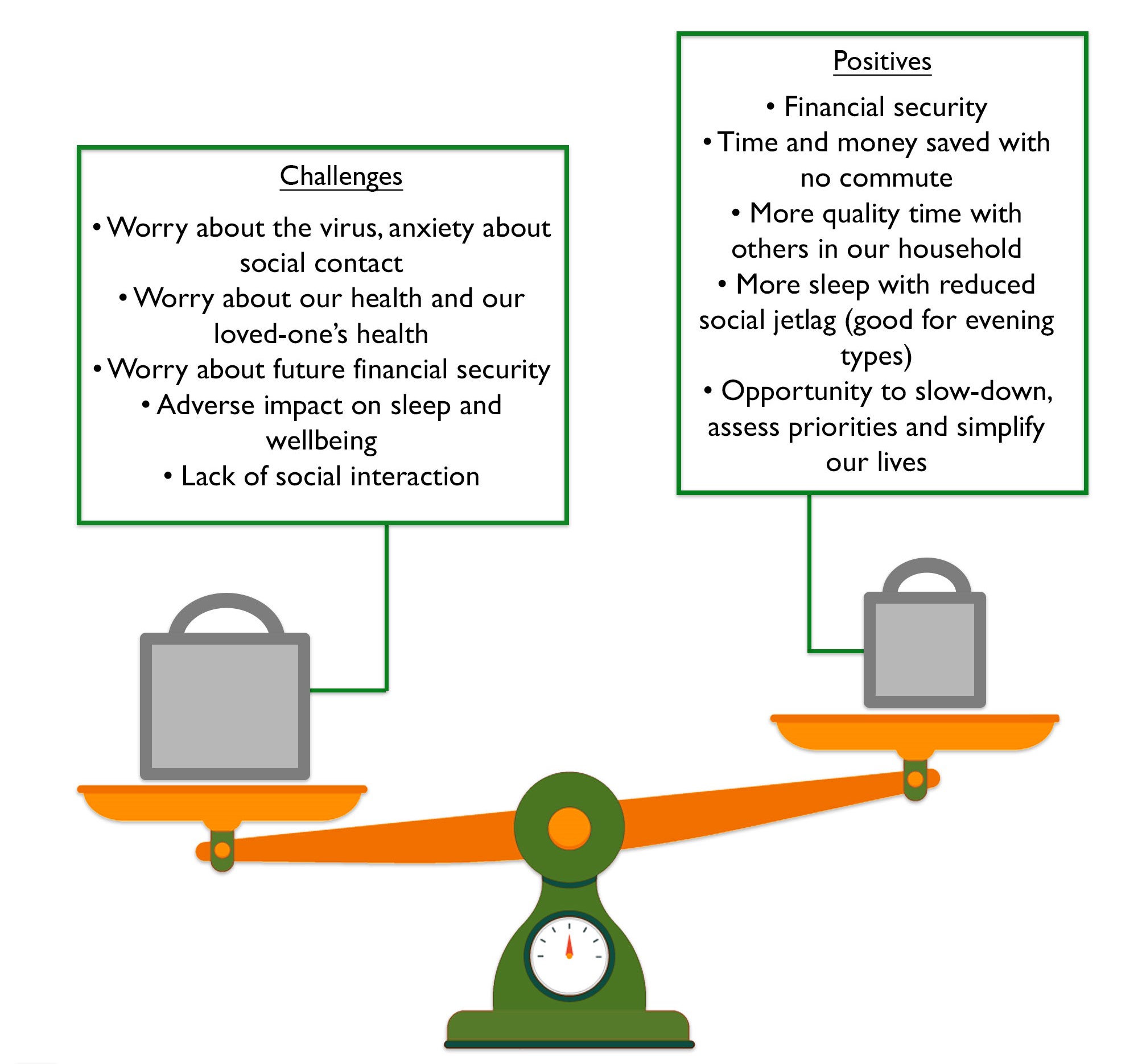One lesson the pandemic has taught us all is the interrelationship between our wellbeing and how well we are sleeping.
For some, the changes brought about by the pandemic have created positives for wellbeing. For example, those lucky enough to still be working, are probably relieved and grateful to still be employed, not just because of financial security and the peace of mind this brings, but also because working can provide a sense of purpose and in many ways be therapeutic. If we are working from home, we may be benefiting from no commute to the office, and with more time at our disposal, we may have had the opportunity to cook and eat healthy meals, rest more and spend more quality time with others in our household. This increased spare time has also provided the chance to slow down, assess our priorities and appreciate the little things.
However, these positives can be undermined if worry is adversely impacting our sleep. Some may be caring for loved ones or worrying about relatives they can’t spend time with, anxious about future job security or overwhelmed by caring for children at home. In addition, those worried about the virus itself are more likely to suffer from poor sleep and consequently a decreased sense of wellbeing.
Wellness Positives and Challenges for those working from home during lockdown

A study by King’s College London (KCL)[1] in partnership with Ipsos MORI, highlighted the associations between stress and sleep health and showed those who find coronavirus stressful are more than twice as likely as those who don’t to report disturbed sleep. The study found that significant proportions of the public said they had experienced changes to their sleep patterns since the announcement of the first lockdown in March 2020.
- Half the population said their sleep had been more disturbed than usual.
- 2 in 5 people said they’d slept fewer hours a night on average.
- 2 in 5 reported having more vivid dreams than usual.
- A quarter said they’d slept for longer and felt more rested.
- 3 in 10 said they’d slept for longer but felt less rested than they normally would.
- The findings also reveal that disturbed sleep is greater in certain groups: women, younger people, and those facing financial difficulties.
Because of working from home, some people have reported sleeping for longer during the lockdown. (1,3) Research has shown that increased sleep during lockdown is related to a reduction in social jetlag(2,3,4), a mismatch between our natural sleep rhythm and our social rhythm, e.g. work, commute, and family demands. Evening types or owls are at increased risk of suffering from social jetlag due to the natural tendency to sleep later coupled with the need to wake early during the working week which can cause a considerable sleep debt.
Among those who slept for longer during the lockdown, some reported feeling less rested than usual.(1,3) Researchers(3) believe that reduced social jetlag should be associated with better sleep quality but increased perceived burden during lockdown has outweighed the benefits of reduced social jetlag.
Reducing social jetlag, keeping to a routine that works for us and managing our levels of anxiety are all key to improving our sleep health. With improved sleep health comes improved wellbeing and an increased likelihood of benefiting from the potential positives of lockdown restrictions, balancing the scales in our favour.
For more information and guidance on how to manage anxiety to improve sleep see our info sheet.
References
Duffy B. (2020). How the UK is sleeping under lockdown. King’s Coll London. https://www.kcl.ac.uk/policy-institute/assets/How-the-UK-is-sleeping-under-lockdown.pdf
Ruscitto, C., & Holmes, A. (2019). What is social jetlag? London. Available at: https://www.bainessimmons.com/knowledge/news/blog/what-is-social-jetlag/
Blume, C., Schmidt, M. H., & Cajochen, C. (2020). Effects of the COVID-19 lockdown on human sleep and rest-activity rhythms. Current Biology. In https://www.sciencedaily.com/releases/2020/06/200610112107.html
Wright, K. P., Linton, S. K., Withrow, D., Casiraghi, L., Lanza, S. M., de la Iglesia, H., … & Depner, C. M. (2020). Sleep in University Students Prior to and During COVID-19 Stay-at-Home Orders. Current Biology. In https://www.sciencedaily.com/releases/2020/06/200610112107.html
Ruscitto, C., & Holmes, A. (2019). How to adjust my beliefs and thoughts about sleep. Available at: https://www.bainessimmons.com/knowledge/papers-and-presentations/
